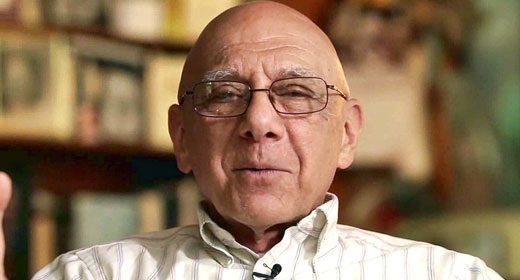by Arjuna Ardagh: Before we go any further you might ask the legitimate question, “What are your qualifications, Arjuna Ardagh, to write an article on this subject? Are you a psychologist?”
Are you a psychologist?”
“No, I am not.”
“Are you a licensed psychotherapist?”
No, also not.”
“Do you have a Pd.D. in communications?”
“Ummmmm. No, I’m afraid not.”
“So what on earth makes you qualified to write on this subject?”
I’ll tell you what. I have been upsetting people for decades. I have got really good at it. Through a long and varied history of upsetting people for all these years, I’ve come to some useful conclusions about what you can do under such dire circumstances, and I’m going to share them with you here.
Has this ever happened to you? Have you ever found someone was mad at you, and you never planned it that way? It could be when you are working together. It could be with your spouse, your parents or your children. You think everything is going just fine and dandy, and then you find out later that this other person was planning your assassination.
There are two instinctive reactions that we can have when we upset someone. And they both of them lead to nowhere very fast.
The first is to focus all your attention on the fact that the other person is upset. “Well, I’m feeling really calm right now, I’m breathing deeply and feeling really good about life. And I notice that you are feeling very upset and emotional. So what’s your problem?” Another version of this theme is to focus on your own good intentions. “I was only concerned that we wouldn’t be late,” or “I know we all feel better when the kitchen is clean, and that’s why I’d like to remind you.” Either of these alternatives are a way to make the other person wrong and to show them that they are basically crazy for being upset. Who knows, you might be right. Perhaps they are crazy. But watch what happens when you focus on it: they get even more upset. If that’s what you want, then fine. But if getting someone mad at you was not part of the original plan, then let’s look at some alternatives.
There is a second alternative, also instinctive and automatic, which gets us in just as much trouble. We can briefly summarize this as the “mea culpa” approach. This means we legitimize the upset of the other and say, “Yeah you’re quite right, I’m so sorry. It’s completely my fault. I was unconscious. I behaved badly. Please forgive me. I promise I will never do it again.” The problem with this approach, especially if you make sincere promises to be a better person tomorrow, is that you might have dissipated today’s upset a little bit, but you set yourself up for an even bigger upset tomorrow. Your rolling over on your back and exposing your soft underbelly may well be a green light for the other person’s vengeful dark side to come out and play. Now you are stuck in a drama where you are the bad guy and every uncomfortable feeling the other person is having is your fault. You can get stuck in that game literally for decades.
There is a third way, which I want to share with you here today. (And by the way, if you’re interested I’m going to share the specific tips and secrets about how to live the third way in a tele-seminar on Thursday October 11th. Details at the end of this post). The third possibility is to get curious: to start to wonder, “What is really happening here?”
Let’s break it down. You are interacting with someone, usually over some practical matter. Usually you have some kind of a history together: you have both done stuff of this kind together before, and energy has gone down between you already. Within that bigger context you may say or do something, which at the time seems very reasonable to you. The combination of your action or speech, together with the history you carry together, as well as the history the other person carries of similar things that have happened to them in the past, generates their emotional reaction. Now this person is having a feeling: humiliated, controlled, distrusting, you name it. Most people on the planet (probably including you and me) are not very good at feeling feelings in their purity. We tend to dramatize them. Most commonly we go into generalizations and judgements like “you’re always telling me what to do,” “you never listen to me or respect me.” Also, none of us are very good at feeling feelings in a vacuum, we have to give them a reason, which gives rise to the kamikaze statement “You made me feel …..”
Let’s look again. What is really happening when someone gets upset at you?
Hmmmmm.
Let me help you out with a shortcut here: if you really ask this question with sincerity, pretty soon you’re gonna come to the awe-inspiring conclusion: “I don’t know. I’ve really got no idea what’s happening. Was it my clumsiness and unconsciousness that caused the situation? Was it their reactivity? Their relationship with their father? Was it the full moon? Mercury in retrograde? Was it something we ate last night? The truth is I DON’T KNOW.”
From that stable foundation now we can really start to get somewhere. The next obvious step from “I don’t know” is the grace that saves the day: curiosity. When you don’t know what’s going on, it’s natural to want to find out. So you might start to ask questions, “What happened to you, when I said those things? What were you thoughts? What were your feelings?” There are literally thousands of ways to jam on this basic riff of curiosity. When you start to tune into the experience of another, you start to realize how little you know about what it is like to be them. Even if you’ve been married to that person for decades, you find out how little you really know about what it’s like to be inside their skin. Now generally speaking, but not always, when you meet another person with genuine curiosity, they feel inclined to tell you more. It is somewhat flattering when someone is curious about you, you see. So when you ask “What kind of feelings were you having?” after a bit of yelling and screaming and so on, they might say (or yell), “I felt humiliated!”
Aha! Now you can ask yourself the interesting question, “Do I also know what that’s like?” “Have I also felt humiliated?” “Have I even felt humiliated under similar circumstances?” Once you start to find similarities in your own experience to the other person’s, you might like to ask again: “Tell me more. Tell me more about what’s going on for you.”
When you ask enough questions with genuine curiosity, a miracle starts to happen. No matter who it is, no matter what it is, the other person’s experience starts to seem more sane and understandable to you. (If that seems very far fetched, it just means there are more questions to ask.) With enough curiosity you get to the point where you can say, truthfully, “Given these circumstances, I would have reacted in the same way.” By “these circumstances” we mean not only the situation between you now, but all of the other person’s past as well.
Then you can take the next tentative step to find out if that person has any interest in what was happening for you. They may not at first, but it’s worth a try. If you offer little bits of information they might also start to say, “Tell me more about that.”
If you can generate genuine curiosity about another person’s experience in this way, and if the other starts to have curiosity about you, almost every time the upset will dissipate. You start to discover that you have shared values. For example, “I don’t want to be controlling” and “you don’t want me to be controlling either.”” I don’t want you to be upset with me” and “you don’t want to feel upset either.” “I want to remember to take out the garbage on Tuesdays” and “I know that you want me to remember that too.” You’d be amazed at how many shared values you have in terms of outcomes you’d both like to see happen.
Curiosity is a very simple habit to cultivate. It might go slowly at first, but it grows on you. It’s all about asking questions, gathering more information, and realizing you do not know as much about that other person as you thought you did. If people get upset with you more than you would like, I’d love to share some more about this with you. We can drill deeper into what kind of questions you can ask. We can go into specific examples of how you can get from upset to feeling closer and more aligned with the other person, more on the same team.
This Thursday October 11th at 6PM Pacific time I’m going to conduct a free tele-seminar about the very specific points of how to put this into action in your life. I hope you’ll join me for the live call. If you can’t make it the same registration page will allow you to access the replay.

















































